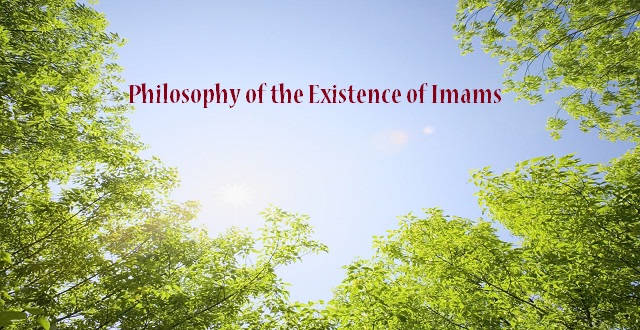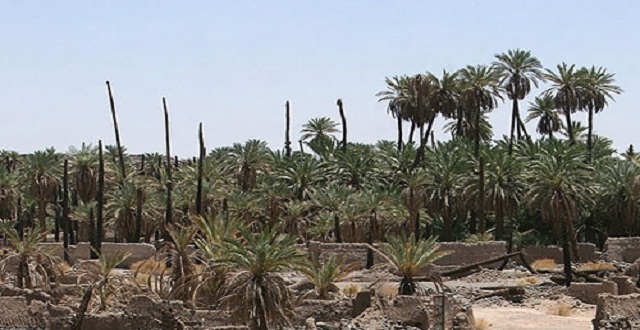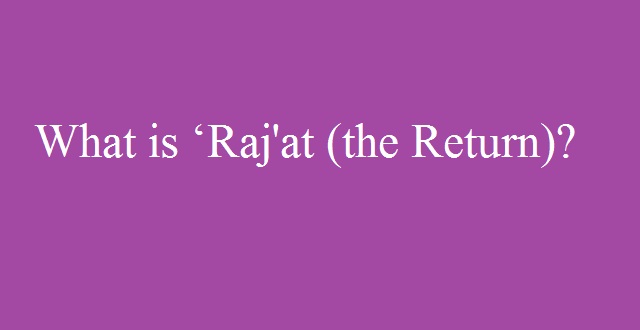Who has to Select the Imam?
A group of Muslims (Sunnis) believe that the Prophet of Islam (S) died not having selected his successor and they believe that this responsibility belongs to Muslims themselves to select their leader.
They undertake this act through Ijma (consensus) which is one of the reasons given in the Divine Law.
They add that this program was implemented the first time for the first caliph who was selected with the consensus of the Ummah.
And he selected the second caliph and introduced him as such.
And the second caliph selected a council of six people to select the person who should succeed him.
This Council consisted of: Imam ‘Ali, peace be upon him, Uthman, Abdal Rahman ibn Awf, Talha, Zubayr and Sa’d bin Abi Waqas.
This Council, with a majority of Sa’d ibn Waqas, Abdal Rahman and Talha voted for Uthman. (The second caliph had directed that if the Council should be divided three to three, the side that Abdal Rahman ibn Awf (‘Uthman’s son-in-law) was on would be the person selected).
Towards the end of Uthman’s reign, the people arose against him for several reasons and before he had a chance to select his successor or select a Council, he was killed.
At this time, the majority of the people turned to ‘Ali, peace be upon him, and selected him as their caliph.
They pledged their allegiance to him as the successor of the Prophet, other than Mu’awiyah who was the governor of Damascus and who was certain that Imam ‘Ali would not support him. He then raised the flag of opposition which was the beginning of disgraceful events in the history of Islam and caused the shedding of the blood of a great many innocent people.
Here, in order to intellectually and historically clarify what happened, several questions arise, a few of which will be mentioned here below.
1. Can the Ummah select the successor to the Prophet?
The answer to this question is that if we take the meaning of imamate to be external leadership of an Islamic society, the selection of a leader on behalf of society with the vote of the people is possible.
But if we take imamate to mean that which we have previously mentioned and as the Holy Qur’an has described, doubtlessly, no one other than God can chose the Imam and the caliph.
The conditions for imamate, according to the commentaries on the Holy Qur’an, is knowledge of all of the principles and practices of Islam, a knowledge whose base is in heaven and relies upon the knowledge of the Prophet so that he can guard and preserve the Divine Law of Islam.
Another condition is that Imam must be immaculate and infallible, free from sin and error and is the selected of the Divine immaculateness so that the station of imamate and spiritual and material, external and internal leadership of the imamate can be assumed as well as austerity, piety, courage which is necessary to confirm this important post.
The discrimination of these conditions can clearly only be done through God and the Prophet. It is He Who knows in whose spirit immaculateness has shown its rays, and it is He Who knows who has the highest knowledge needed for leadership, the sufficient courage and spiritual strength.
Those who placed the selection of the Imam and the caliph of the Prophet in the hands of the people, in truth, changed the meaning of imamate in the Holy Qur’an and limited it to meaning only leadership and giving organization to the affairs of this world of the people. Otherwise the conditions of imamate in the general and complete sense can only be determined by the Creator and it is He Who knows who has these qualities.
The Holy Prophet, as well, could not have been selected by the vote of the people, but must rather have most definitely been selected by God Almighty, because other than God, no one can discern the necessary qualities in the Prophet.
2. Did the Prophet not select a Person to succeed him?
There is no doubt that the precepts of Islam were universal and eternal and according to the direct verses of the Holy Qur’an, special to no time or place.
There is, also, no doubt that at the time of the death of the Holy Prophet, the precepts of Islam had not moved beyond the Arabian peninsula.
On the other hand, 13 years of the life of the Prophet in Mecca were spent in struggle against polytheism and idol worship and 10 years of the life of the Prophet, which began from the time of the migration to Medina which was the period of the blossoming of Islam, was spent mainly in conflicts and wars imposed upon him by the enemies.
Even though the Holy Prophet spent night and day endeavoring to have Islam be better understood and to teach the precepts of Islam, but is it clear that many of the Islamic issues needed more time and a person similar to the Holy Prophet was needed to be able to do so and to accept this heavy responsibility.
Beyond this, the foreseeing of future events and providing the preliminaries for the school was among the most important tasks which was something that every leader thought about and would never allow himself to forget.
Beyond this, the Prophet of Islam had provided commands for all of the affairs of life from the most simple possible. Could it be, then, that he would not have provided for the important issue of the person who was to succeed him and not determine the imamate for the Muslims?
The totality of these three directions are clear reasons why the Prophet (S) most certainly took steps for the determination of his successor which we will mention in the later lessons so that this logical reality will become more clear, because the Holy Prophet was never negligent in this area even though many political waves, after the Prophet, tried to fill the people’s minds with the idea that he had neglected to select a successor.
Can one really believe that considering that when the Holy Prophet left the city for just a few days for a conflict (like Tabuk), he did not leave Medina empty of his successor and he took steps to assign a person to succeed him and act in his place, he not guarantee the future generations after his death by selecting his successor but rather left the Ummah in the middle of an abundant number of groups who had differences of opinion on the method of the continuity of Islam?
It is clear that the lack of assigning a successor would have been a great error for Islam which was recently formed and developing. Our intellect and logic tells us that such a situation is impossible to have come from the Prophet of Islam.
Those who say that this was the responsibility of the Ummah must at least show that the Prophet directed this issue whereas no such proof of this is offered
3. Consensus and Council
Let us assume that the Prophet of Islam ignored this vital issue and the Muslims themselves were duty-bound to choose his successor, but we know that consensus means the consensus of the Muslims and such a consensus did not exist in relation to the first caliph.
Only a group of the Companions who lived in Medina made the decision to do this and the rest of the cities of Islam were not in agreement and did not participate in this decision. In Medina itself, ‘Ali, peace be upon him, and a large number of the Bani Hashim, did not participate in any way. Thus, such a consensus cannot be accepted as such.
And if this method be correct, why did the first caliph not use the same method in choosing the second caliph?
Why did he personally select his successor? If the determination of one person is sufficient, the Holy Prophet, who was of the highest station should have his method of selection be accepted and if the later allegiance of the people would solve this problem, in relation to the Holy Prophet, they solve it better.
Beyond this, a third difficulty arises as to the third caliph and that is why did the second caliph not use the method which was used to select the first caliph? Why did he ignore it as well as the tradition which had been used in his own case, that is, neither did he choose Consensus nor did he chose election of an individual but chose a council to do so.
If a council or the idea of consultation is correct, then why just six people? And how can the vote of three people out of six be sufficient?
These are questions which arise for every scholar of Islamic history and they have remained unanswered showing that the way to select the Imam was none of these.
4. ‘Ali ibn Abu Talib was the most worthy of all
Let us assume that the Prophet of Islam (S) did not determine who was to succeed him. Let us also assume that it was the responsibility of the people but can it be that at the time of choosing a person, from the point of view of a person who has knowledge and piety and other qualities, and is superior to all others, be put aside and that a person who is lower on this ladder be chosen?
A large group of Islamic scholars, even those who are among the Sunnis, have directly stated that ‘Ali, peace be upon him, was the most aware person of Islamic affairs and the Traditions and traces which have remained from him, bear witness to this truth.
The history of Islam says that he was a place of refuge for the Ummah in all intellectual knowledge and difficulties and even if the other caliphs were asked difficult and complicated questions, they asked ‘Ali to answer them.
His courage, piety and austerity and other outstanding qualities which he possessed were superior to those of any other. Thus, if we assume that the people should select the most superior person, ‘Ali, peace be upon him, was the most deserving.
(Of course, this discussion has many, many documents which are beyond the range of this brief study to be presented here. Students who are interested may study further in this area).
Think and Answer
1. Why can the people not select and choose the successor to the Prophet?
2. Does our intelligence and logic tell us that the Prophet did not select any one to succeed him or not?
3. What method was used to choose the first three caliphs?
4. Was their method of selection based on Islamic precepts and logic?
5. Why was ‘Ali the most deserving of all?









